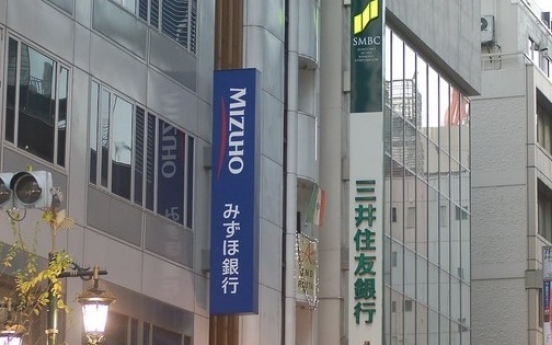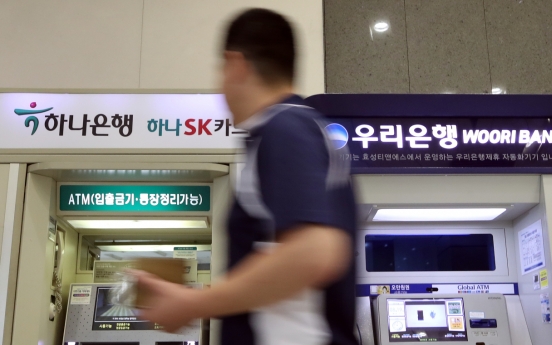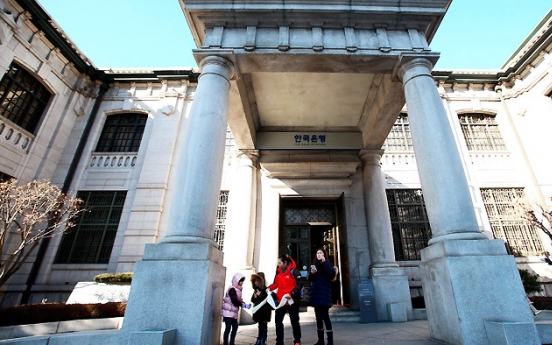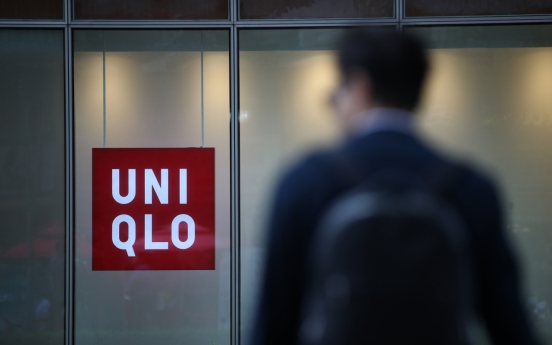Articles by Jung Min-kyung

Jung Min-kyung
mkjung@heraldcorp.com-
Korean VC firms expand investments in pet technology startups
Eyeing the fast-growing pet industry, Korean venture capital firms have been expanding their investments in developers and manufacturers of products related to pet technology this year. Pet technology refers to technologies or products designed to help owners care for their pets through apps, e-commerce and online services. Accelerator New Paradigm Investment, a subsidiary of venture capital firm TS Investment, invested in blockchain-based pet identification app BlockPet last month, accord
Market Sept. 3, 2019

-
Equity fund related to Korea-Japan trade spat raises W40b
A local equity fund, in which South Korean President Moon Jae-in invested last week to show his confidence in domestic firms likely to benefit from Japan’s export curbs, has amassed more than 40 billion won ($33 million) as of Friday, fund operator NH-Amundi Asset Management said Sunday. The fund dubbed the “NH-Amundi Victorious Korea Equity Fund,” was launched on Aug. 14 with about 30 billion won initial capital. It invests in local companies that manufacture industrial equipm
Market Sept. 1, 2019

-
Korean bank chiefs to join Moon on Myanmar trip
Chiefs of major South Korean commercial banks will join President Moon Jae-in as part of his economic delegation on the Myanmar leg of his trip to three Southeast Asian countries next week, sources said Wednesday.Heads of commercial banks here, Shinhan’s Jin Ok-dong, KB Kookmin’s Hur Yin and Industrial Bank of Korea Chairman Kim Do-jin, will accompany Moon on his visit to Myanmar scheduled for Sept. 3-5, spokespersons for the firms confirmed to The Korea Herald. Moon’s entire t
Market Aug. 28, 2019

-
Trade concerns push S. Korea’s consumer sentiment to 31-month low
South Korea’s consumer sentiment came to 92.5 in August, the lowest indicator readout since January 2017, data released by the Bank of Korea showed Tuesday as global trade issues continued to weigh on the economy. According to the central bank, the composite consumer sentiment index dipped 3.4 points on-month to well below the baseline of 100, which means consumers are decidedly pessimistic compared with average readings between 2003 and 2018. The BOK cited a number of risks to explain the
Economy Aug. 27, 2019

-
US-China trade row developing into worst-case scenario: report
The ongoing US-China trade war is developing into a worst-case scenario, according to a report published by a local brokerage on Monday, citing that China has begun settling into a trade war of attrition. According to Hana Financial Investment analyst Kim Kyung-hwan, the global market is now exposed to further uncertainties stemming from the trade feud, as it is on the verge of entering a new stage, while negotiations between the two largest economies remain largely stalled. “With Ch
Economy Aug. 26, 2019

-
Kospi-listed firms see higher debt ratio in H1
The average debt-to-equity ratio of South Korean firms listed on the main bourse Kospi increased 4.44 percentage points from the end of last year, data released by the Korea Exchange and the Korea Listed Companies Association showed Monday, indicating higher degrees of debt financing and weakened financial health. According to the data, 636 Kospi-listed firms saw their average debt ratios inch up 4.44 percentage points to 108.75 percent from the end of last year, as of late June. Those in
Market Aug. 26, 2019

-
S. Korea vows to minimize negative economic impact from GSOMIA termination
A day after South Korea announced its decision to scrap a military intelligence-sharing pact with Japan, Deputy Prime Minister and Finance Minister Hong Nam-ki said Friday that the government will make efforts to minimize any negative impact this might have on the economy. On Thursday, Seoul announced it would terminate the General Security of Military Information Agreement amid an ongoing trade dispute with Japan. Hong said the “pact was deemed not beneficial to the country.”Wi
Economy Aug. 23, 2019

-
S. Korea issued $2.7b high-risk derivative products in 2018: data
South Korea’s financial institutions issued 3.2 trillion won ($2.7 billion) worth of high-risk derivatives-linked securities last year that did not guarantee the return of the investor’s original investment, according to data from the Korea Financial Investment Association released Thursday.The volume of such DLS issued increased 29 percent on-year from 2.9 trillion won in 2017 and hit a record high, feeding concerns over South Korean investors’ growing appetite for high-risk,
Market Aug. 22, 2019

-
Experts call for greater autonomy for financial firms in firewall regulations
Addressing growing calls in South Korea to ease firewall and outsourcing regulations, senior officials from global financial institutions on Wednesday highlighted the need to allow firms more choice in setting the scope of their data protection. Growth prospects of the financial sector have apparently been curbed by “stricter-than-necessary” legal barriers that restrict the transfer of information between certain financial parties and outsourcing regulations set by the financial auth
Market Aug. 21, 2019

-
Mirae Asset Daewoo posts robust H1 overseas earnings
Marking one year since Mirae Asset Group Chairman Park Hyeon-joo became global investment strategy officer of the firm’s brokerage unit Mirae Asset Daewoo, the brokerage’s overseas businesses reported robust earnings for the first half of the year. According to an earnings report recently released by the brokerage, the combined net profit of Mirae Asset Daewoo’s overseas branches reached 82.7 billion ($80 million) in the January-to-June period, up nearly 70 percent compared to
Market Aug. 20, 2019

-
Loans extended by Japanese lenders in Korea drop, conglomerates remain large borrowers
The combined volume of loans extended by Japanese lenders operating here fell 5.4 percent on-month as of late June, data showed Tuesday. Meanwhile, loans taken out by local conglomerates accounted for more than half of the total volume, a report by the Financial Supervisory Service showed.According to the report submitted to a main opposition lawmaker, the volume of loans stood at 23.4 trillion won ($20 billion) as of late June, down 5.4 percent from 24.7 trillion won the previous month. A
Market Aug. 20, 2019

-
S. Korean banks criticized for ‘irresponsible selling’ of DLS products
South Korean banks and brokerages are in hot water for selling high-risk derivatives-linked securities and related funds to their customers, mostly retail investors, allegedly without providing sufficient warnings or instructions. According to the watchdog Financial Supervisory Service on Monday, eight major financial institutions here sold a combined 822.4 billion ($678.8 million) worth of DLS and funds that use the high-risk product to 3,654 individual investors and 188 businesses as of Aug. 7
Market Aug. 19, 2019

-
Signs of global recession haunt S. Korean economy
A shadow of global recession looms over key economies as major markets have been dealing with some of their worst days in recent weeks. This is sparking concerns that chances of recession may also be growing on home turf, in South Korea. Last week, the yields on US 10-year Treasurys fell below two-year yields for the first time since 2007 – a phenomenon known as an inverted yield curve. Investors and experts alike are regarding such trend with wariness -- every recession in the last 60 yea
Economy Aug. 18, 2019

-
[Weekender] Won, dollars and supernotes: How fake bills are detected
An average of 1,000 counterfeit bills are spotted and seized annually in South Korea -- many of them via KEB Hana Bank’s anti-counterfeiting center. With 15 employees and technology worth 1.5 billion won ($1.3 million), the unit handles 37 currencies and is responsible for nearly 80 percent of all counterfeit bill detection in the country. Situated in the basement of a KEB Hana Bank branch office in Euljiro, central Seoul, the center scrutinizes banknotes worth about 12 billion won every d
Market Aug. 16, 2019
![[Weekender] Won, dollars and supernotes: How fake bills are detected](//res.heraldm.com/phpwas/restmb_idxmake.php?idx=649&simg=/content/image/2019/08/15/20190815000162_0.jpg&u=20190816094835)
-
S. Korea’s credit card spending on Japanese brands halves amid boycott
South Korean consumers cut back their credit card spending on products sold by Japanese brands here by nearly 50 percent as of end-July, a report by the nation’s financial watchdog showed Thursday.According to the report released by an opposition lawmaker, the combined card spending plummeted to 4.9 billion won ($4 million) in the fourth week of July, from 10.2 billion won in the last week of June. On-year, the combined credit card spending on Japanese products sold in Korea, fell 48 perce
Market Aug. 15, 2019

Most Popular
-
1
Actor Jung Woo-sung admits to being father of model Moon Ga-bi’s child

-
2
Wealthy parents ditch Korean passports to get kids into international school

-
3
Man convicted after binge eating to avoid military service

-
4
First snow to fall in Seoul on Wednesday

-
5
Final push to forge UN treaty on plastic pollution set to begin in Busan

-
6
Industry experts predicts tough choices as NewJeans' ultimatum nears

-
7
Korea to hold own memorial for forced labor victims, boycotting Japan’s

-
8
Nvidia CEO signals Samsung’s imminent shipment of AI chips

-
9
Job creation lowest on record among under-30s

-
10
Opposition chief acquitted of instigating perjury















![[Weekender] Won, dollars and supernotes: How fake bills are detected](http://res.heraldm.com/phpwas/restmb_idxmake.php?idx=649&simg=/content/image/2019/08/15/20190815000162_0.jpg&u=20190816094835)










